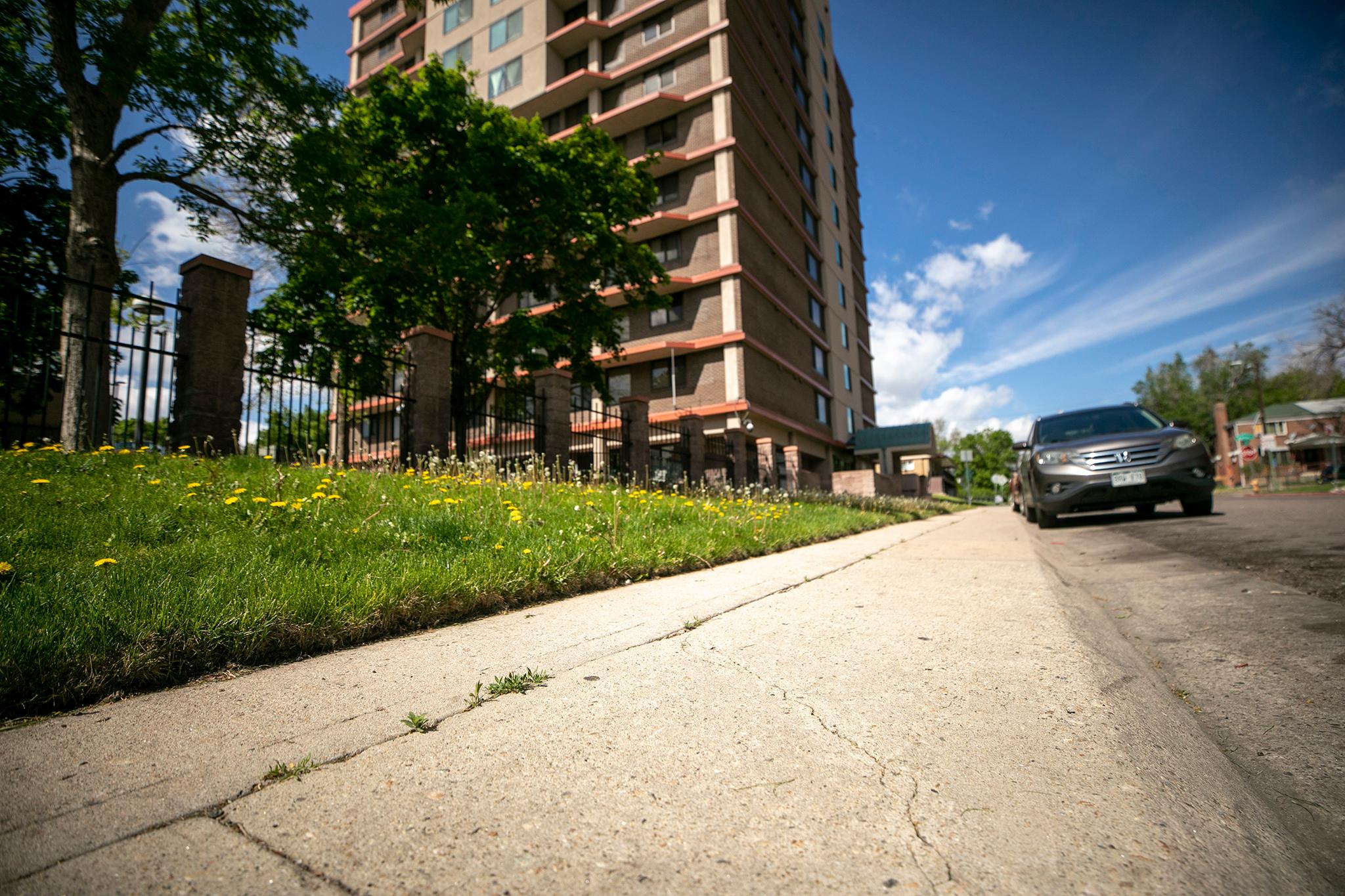Starting January, most Denver property owners will be charged $150 per year for sidewalk upkeep and expansion, as part of a voter-approved repair program passed in 2022.
The Denver City Council unanimously approved final changes to the fee structure Monday, which means that after a year of delays, Denver will finally get started on the ambitious infrastructure project.
Previously, residents were responsible for their own sidewalk upkeep, which led to many sidewalks in disrepair and portions of the city with no sidewalks at all.
After voters passed the Denver Deserves Sidewalks program in 2022, responsibility for sidewalk infrastructure shifted from individual owners to the city — with funding from a new fee on properties.
The plan will levy a fee on owners and use that new fund to completely fix and build out Denver’s sidewalks, supposedly within a decade.
The program will give the City of Denver tens of millions of dollars and marching orders to fix a huge chunk of infrastructure. It’s something not many other cities have tried.
“Everybody is watching very closely and we're all going to learn a lot, and I'm really confident that Denver's going to become a model that other cities are going to look to around the country that proves it is possible, we can build pedestrian infrastructure too. We don't just have to limit ourselves to car infrastructure,” said Jill Locantore, executive director of Denver Streets Partnership and one of the leaders who pushed for the bill.
Denver spent the past two years figuring out how to actually make that happen.
The original fee structure, based on how much of the property faced the street, had the largest group of owners paying between $100 and $200 per year. But some residents with corner lots could get stuck with $400 to $800 bills every year.
Under the new fee structure, passed by city council Monday, most owners will pay a flat $150 annually. A small portion of homeowners whose property stretches a long distance on major streets will pay an extra $3.50 per linear foot of street edge, but only for the length in excess of 230 linear feet.
That means some residents with extra-large lots, plus parks and schools, could still get stuck with bigger bills. It’s not clear exactly how much — city staff said a calculator tool will come in the next few months for large properties.
“All I’m asking is, larger lots should pay more, but that it be a reasonable amount in relation to the fees that are being charged,” said Thomas Herrington, who told council he could still face thousands of dollars in sidewalk bills per year.
Councilmeber Paul Kashmann, who serves on a committee working on the program, said the group will continue to meet and could potentially tweak the program down the line to address big bills.
The changes also mean property owners who live on private streets will be charged fees, even though they will continue to be responsible for their own upkeep. That’s a change from the original plan, which would have exempted those residents.
“There are hundreds of property owners who will pay a fee now, who under the original owners would not, and … the rationale for that is that we are all pedestrians,” said council member Kevin Flynn, who originally opposed the bill but served on the committee and ultimately voted yes on the changes.
Fees could rise above $150 in the future.
Under the new changes, property owners could also face annual fee increases based on inflation if necessary. The original program only included the potential for increases every five years.
The changes also expand who can access low-income discounts and add a discount for eligible apartment owners whose buildings include at least a quarter of income-restricted affordable housing.
It’s still unclear how long fixing and building out Denver’s sidewalks will take.
The program’s original language called for the city to get the job done in nine years, but part of the changes passed Monday recognized that might not be possible, expanding the timeline to “soon thereafter.”
Estimates have ranged from nine years to nearly 30 years from now. And with construction costs and potential property acquisitions for sidewalks, that final price tag is unclear too.
In 2022, proponents of the plan estimated it would raise more than $40 million per year, which could be used to secure $850 million in debt — but a city analysis from that year predicted the total costs would range from $2.8 billion to $7.3 billion. That’s such a wide range, and the plan has changed so much since then, that those initial costs are likely unreliable. The city hasn’t yet released new estimates.
While the program gets fully underway, Denver is offering money from a smaller fund to get started on fixing the worst offenders. But a master plan covering how the city will prioritize sidewalks and how the new money will be spent will not come until 2025.












